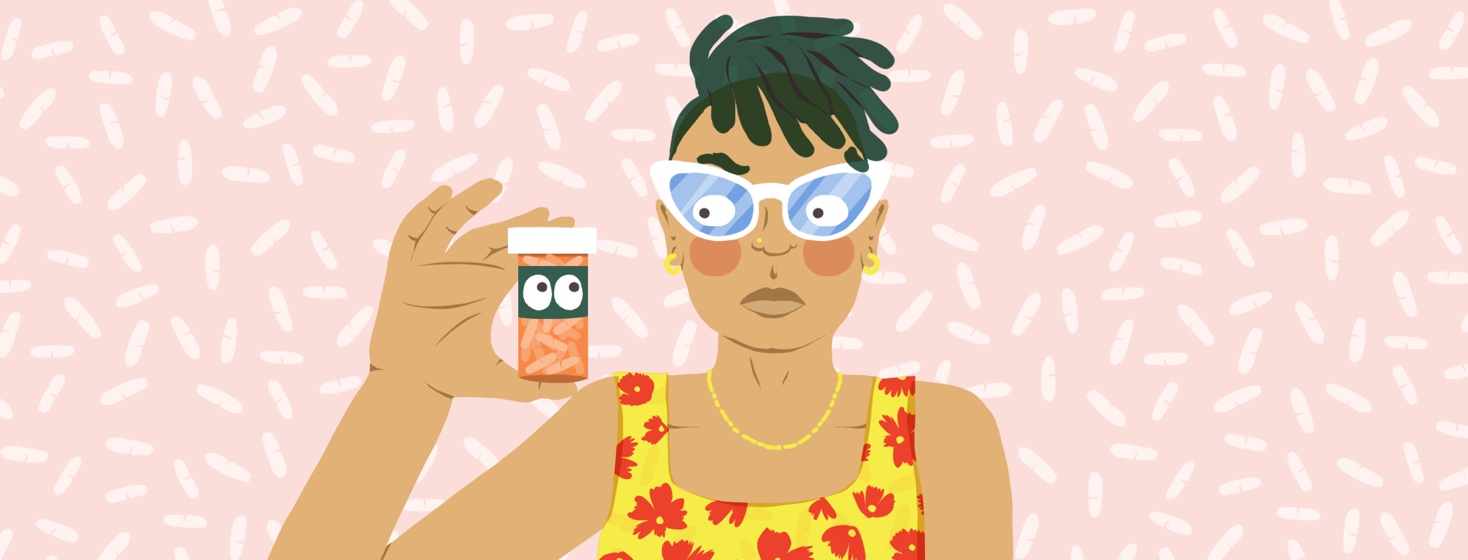Antibiotics and IBS
The doctor squinted at the computer and then returned her glance to me.
"It looks like you have an infection," she said. "We should try you on a round of antibiotics."
She must have seen the skeptical look on my face, because she continued, trying to convince me: "This infection will make your cramps worse and your bleeding heavier with your periods. If you want some relief, combating the infection should help, at least in the short term."
Antibiotics and IBS
The infection, in this case, was endometritis, which is an infection of the lining of the uterus. I had had a biopsy of my uterine lining the month before, which had revealed the presence of a low-grade but chronic infection. Hence, this was (one reason why) my periods been heavier and more painful in recent months.
She urged me again to take the prescription she was offering, saying that it was important to try the antibiotics.
I finally responded: "I have IBS, and a really sensitive gut."
"Ah," she said, finally understanding my reluctance. "It's true these might bother your tummy a bit."
But then she added: "But you still should take them."
At the time, I was only less than a week from traveling to a conference for people with chronic illness and disability. Traveling is another thing that can cause an IBS flare. So, I made the decision I would wait till a couple of days after I returned from my trip to start taking the recommended course of antibiotics. I also made plans to stick close to home (and to a bathroom) and not make any major trips for the next 5-6 days while on the course. I also decided to triple up on my probiotics at the same time--taking them three or sometimes even four times a day as opposed to my standard once-a-day regimen.
Why do antibiotics make IBS worse?
Why? Antibiotics can really wreak havoc with someone's stomach. Even those who don't have IBS can get diarrhea and other issues when taking them.
Antibiotics work by killing off the bacteria that can cause infections, like endometritis, ear infections, urinary tract infections, etc. But the bad news is, the antibiotics can't distinguish between good and bad bacteria. Good bacteria are present in the gut--that is, in the intestinal tract. Good bacteria can really help make a difference in bowel function. I know this well because taking probiotics daily have been one of the single most effective things in helping me get my IBS under control and minimizing flares. This is why taking probiotics can help preempt and counter the negative impacts of antibiotics by adding back in that good bacteria to the GI tract the antibiotics are killing off.
My experience with antibiotics
When I returned from my trip, I began taking my antibiotics. I also stuck to an extremely safe IBS diet the entire time--no fatty foods, spicy foods, alcohol or anything else that might trigger a flare. Lots of low FODMAP and soluble fiber-rich foods.
Even when I finished the round of antibiotics, I continued to triple up on probiotics and eat a safe/relatively bland diet for the next few days after, since antibiotics can still linger in your system for a while. Luckily, I didn't have any IBS issues the entire time I was on the antibiotics or right afterward either. This probably was at least in part due to all of the precautions I took. It might also be that the kind of antibiotics I took (some bother me more than others). Or perhaps the antibiotics benefited my gut as well, either indirectly (by soothing the infection in and with it, the inflammation, of my uterus, my intestines might have had less pressure on it since my uterus is retroverted and so leans right on my colon) or more directly. Maybe the antibiotics might have also been effective in killing off some bad bacteria lingering in my gut as some people with IBS do sometimes benefit from a course of antibiotics. One study from a few years back even found that one kind of antibiotic (rifaximin) can, in fact, be helpful in alleviating symptoms associated with IBS-D. In particular, the study concludes that: "....the safety and mechanism of action of rifaximin has enabled success in the empiric treatment of D-IBS." 1
Do antibiotics make your IBS worse? If so, what things do you do that help minimize the negative side effects (if anything)? Or has antibiotics actually helped your IBS? Please answer in the comments below!

Join the conversation